These sweet and sour Berries that Look Like Blueberries will easily deceive you into thinking they are one and the same!
If you love the blend of sweetness and tartness and want to have some variety in your taste, these berries that look like blueberries should be on your fruit platter. However, be careful about their toxic traits before including them in your diet!
Berries that Look Like Blueberries
1. Serviceberries
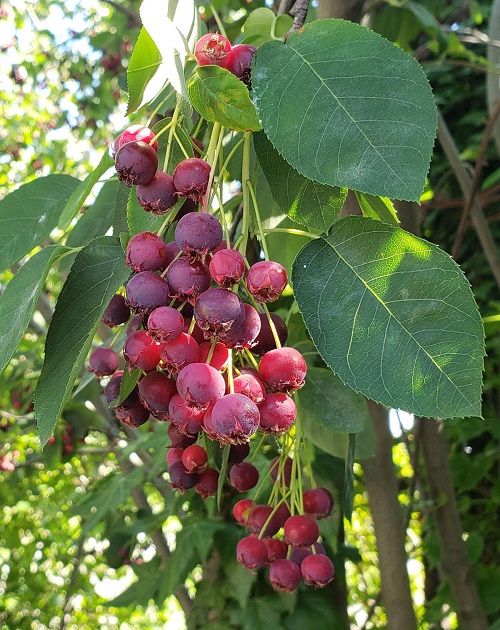
Botanical Name: Amelanchier arborea
You must have known these berries as Juneberries, which share a similar size and color to blueberries, with their small, round shape and a deep blue-black hue.
2. Elderberries
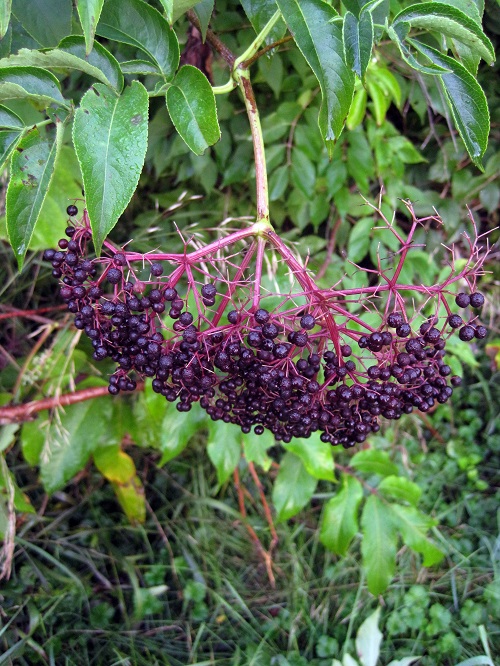
Botanical Name: Sambucus nigra
With dark purple skin and a small, round shape, Elderberries look a lot like blueberries, but there’s a catch—these are toxic in their raw form and need to be cooked well before consumption.
3. Bilberries
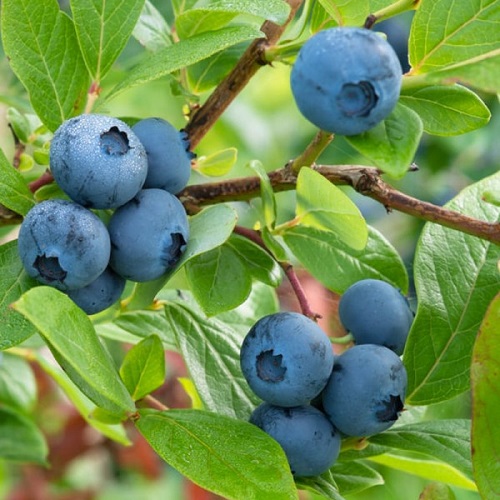
Botanical Name: Vaccinium myrtillus
Bilberries often play the role of blueberry doppelgangers with their dark blue appearance and similar size. Plus, their high antioxidant content makes them a medicinal alternative to blueberries.
4. Crowberries
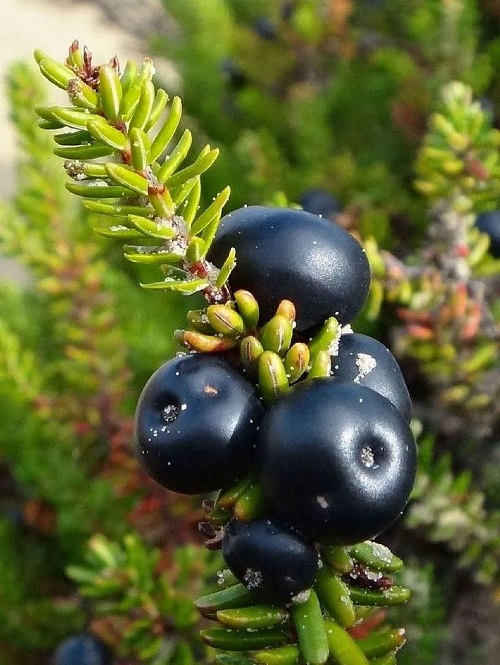
Botanical Name: Empetrum nigrum
While crowberries may not match the sweetness of blueberries, they resemble them in size and color. Their intense tartness and distinctive texture set them apart when it comes to taste.
5. Acai Berries
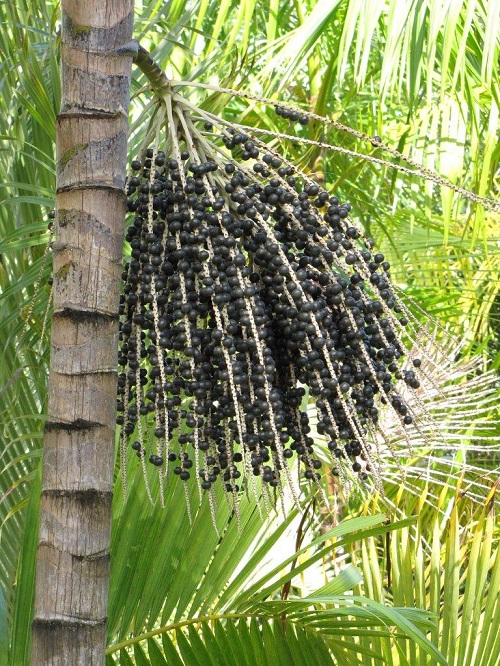
Botanical Name: Euterpe oleracea
Acai berries have a deeper, almost black hue, which again resembles blueberries. However, these aren’t that sweet and have a more earthy flavor profile.
6. Huckleberries
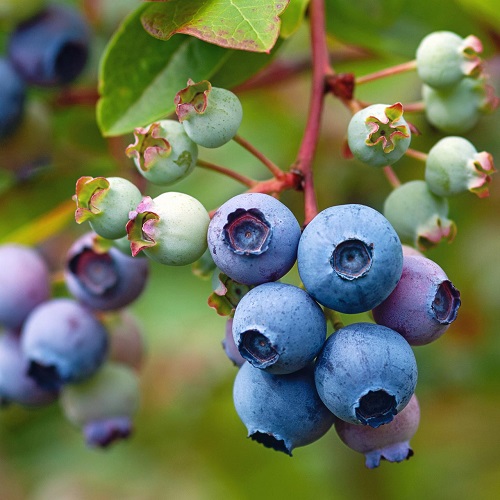
Botanical Name: Vaccinium membranaceum
If you are looking for an exact look-alike, Huckleberries stand out in both size and color. You’ll love them if you prefer tartier flavors with an intense aftertaste.
7. Saskatoon Berries

Botanical Name: Amelanchier alnifolia
Saskatoon, again, stands as a close relative to blueberries with a similar size and color. However, they have a nuttier, almond-like flavor and might not feed your fruity appetite.
8. Deerberries
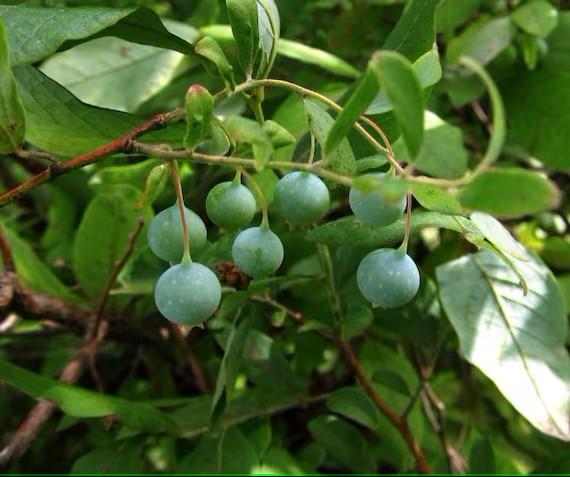
Botanical Name: Vaccinium stamineum
If you lack that sweet tooth and are more into acidic alternatives, Deerberries can be your pick with a similar color, size and shape as that of blueberries.
9. Chokeberries
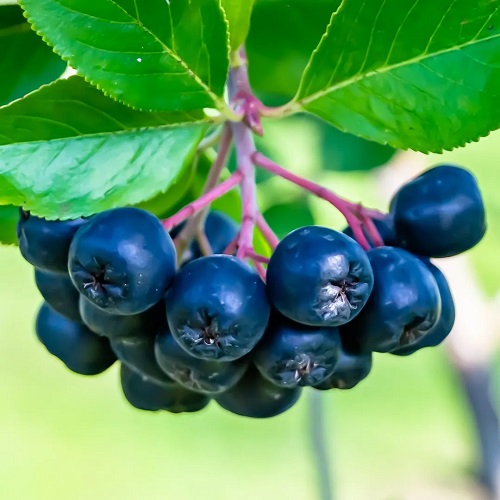
Botanical Name: Aronia spp.
Chokeberries have a darker color and can easily be mistaken for blueberries due to their size and shape. Popular in wetlands and forests, these berries have remarkable antioxidant content, making them fit for culinary purposes.
10. Juniper Berries
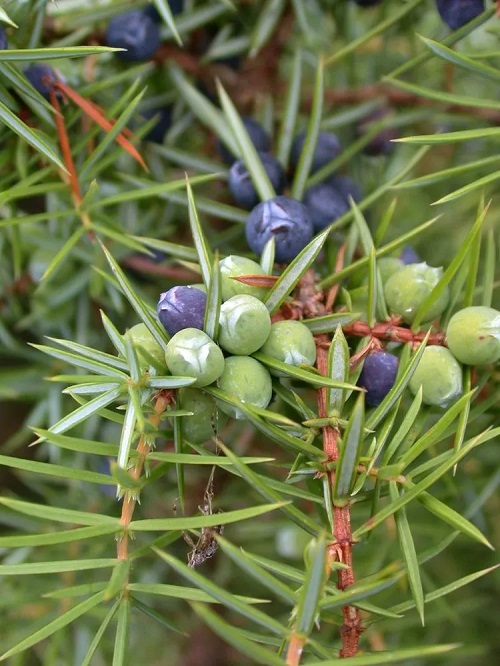
Botanical Name: Juniperus communis
Juniper berries closely resemble blueberries in size and shape but differ significantly in taste. Additionally, they grow on shrubs and generally have a greener hue.
11. Nightshade Berries
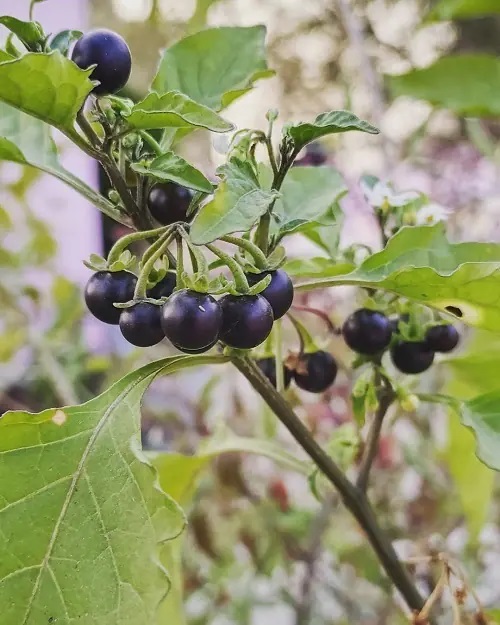
Botanical Name: Solanum nigrum
When nightshade berries are fully ripe, they share similarities in appearance with blueberries, but have a darker hue. Remember, these are only pretty to look at and have some really toxic traits.
12. Pokeberries

Botanical Name: Phytolacca americana
Pokeberries are the inedible doppelgangers of blueberries. They come in round dark purple clusters that look like blueberries but have toxic elements, making them unfit for consumption.
13. Virginia Creeper Berries
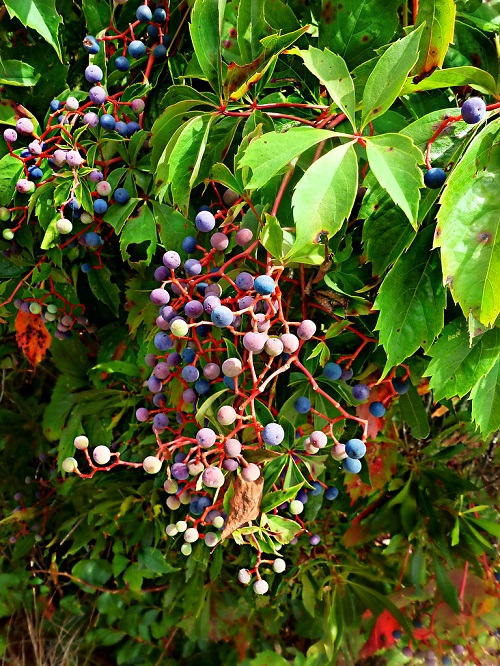
Botanical Name: Parthenocissus quinquefolia
Again, a toxic addition, Virginia Creeper berries make to this list due to their color and shape. However, even skin contact with these berries can cause irritation, let alone their consumption.

